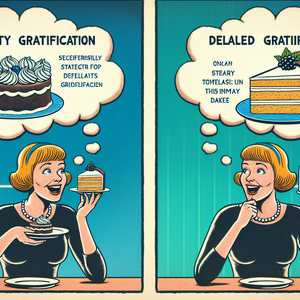The Art of Saying No: Mastering Boundaries in a High-Pressure Job

Setting boundaries is essential for maintaining a healthy work-life balance, safeguarding mental health, and ensuring sustained productivity. In high-pressure environments, the fear of disappointing colleagues or superiors can lead to an unhealthy cycle of overcommitment. Failing to establish these boundaries can result in overwhelming workloads, which may lead to decreased job satisfaction and increased stress levels. Research indicates that professionals who fail to set boundaries are more prone to burnout. According to a survey by Gallup, employees who report high levels of stress and burnout are more likely to experience disengagement at work, which can negatively impact their performance and overall job satisfaction. Thus, setting boundaries is not only a personal necessity but also a professional imperative.
Recognizing the Signs of Overcommitment
The first step in mastering the art of saying no is recognizing the signs of overcommitment. These may include: - **Constant Feelings of Stress**: A persistent sense of anxiety or being overwhelmed. - **Difficulty Meeting Deadlines**: Struggling to keep up with project timelines. - **Tendency to Work Late Hours**: Regularly staying late to complete tasks. - **Growing Resentment**: Developing negative feelings toward certain tasks or colleagues. By acknowledging these signs, professionals can take proactive measures to protect their well-being. Recognizing these indicators early can prevent a downward spiral into burnout and disengagement.
Effective Strategies for Saying No
1. **Be Clear and Concise**: When declining additional responsibilities, clarity is key. Avoid lengthy explanations that may lead to misunderstandings. A simple, respectful response such as, "I appreciate the offer, but I am currently at full capacity and cannot take on additional projects," conveys your message effectively. 2. **Offer Alternatives**: If possible, suggest alternatives to taking on extra work. This could include recommending another team member who has the bandwidth or proposing a later timeline that allows you to manage your current workload more effectively. For instance, "While I cannot take on this project right now, I believe [Colleague's Name] might be able to assist." 3. **Practice Assertiveness**: Assertiveness is about expressing your needs and boundaries confidently and respectfully. Practicing phrases such as "I can't commit to this at the moment" or "I need to prioritize my current tasks" can help you build confidence in saying no. 4. **Use Positive Language**: Frame your refusal in a positive light. Instead of focusing on the negative aspect of declining, emphasize your commitment to delivering quality work. For example, "I want to ensure I deliver my best on current projects, so I need to decline this additional task." 5. **Emphasize Your Priorities**: Communicating your priorities can help others understand the reasoning behind your decision. For instance, "I am currently focused on [specific project], and I need to dedicate my full attention to it to meet our deadlines."
The Role of Company Culture
A supportive company culture can significantly influence employees' ability to say no. Organizations that prioritize employee well-being and promote open communication create an environment where setting boundaries is encouraged and respected. Leaders can foster this culture by modeling healthy boundary-setting behaviors, emphasizing the importance of mental health, and encouraging employees to communicate their workloads openly. A study from the Harvard Business Review highlights that companies with a strong emphasis on work-life balance report higher employee engagement and lower turnover rates. When employees feel supported, they are more likely to set appropriate boundaries, leading to a healthier, more productive workplace.
Mastering the art of saying no is a vital skill in today’s high-pressure work environments. By recognizing the importance of boundaries, employing effective strategies, and fostering a supportive company culture, professionals can protect their mental health, enhance productivity, and maintain positive relationships with colleagues. The ability to assertively decline additional responsibilities is not just about saying no; it's about valuing oneself and ensuring that the quality of work does not suffer due to overcommitment. Ultimately, saying no can lead to a more balanced, productive, and satisfying professional life, allowing individuals to thrive in their careers rather than merely survive. In conclusion, professionals must embrace the power of saying no as a fundamental aspect of their career development and personal well-being. By prioritizing self-care and fostering a culture of respect for boundaries, individuals can navigate their high-pressure jobs with confidence and poise.
Human Resources Manager
Large corporations, healthcare organizations, educational institutions, non-profits
Core Responsibilities
Develop and implement HR policies that promote a healthy work-life balance among employees.
Facilitate training programs on stress management and resilience in the workplace.
Mediate conflict resolution to foster a supportive company culture.
Required Skills
Strong communication and interpersonal skills.
Experience in employee training and development programs.
Knowledge of labor laws and organizational behavior.
Project Manager (Agile Methodology)
Tech firms, consulting agencies, product development companies
Core Responsibilities
Lead project teams using Agile practices to ensure iterative delivery and stakeholder engagement.
Prioritize tasks and manage team workload to prevent burnout and stress.
Facilitate regular stand-up meetings to assess team capacity and project progress.
Required Skills
Proficiency in Agile frameworks (Scrum, Kanban).
Strong organizational and time management skills.
Ability to communicate effectively with diverse teams.
Corporate Wellness Coordinator
Corporations with a focus on employee well-being, healthcare organizations, educational institutions
Core Responsibilities
Design and implement wellness programs aimed at reducing employee stress and promoting mental health.
Organize workshops and seminars that focus on boundary-setting and work-life balance.
Evaluate the effectiveness of wellness initiatives through employee feedback and engagement metrics.
Required Skills
Background in health promotion, psychology, or social work.
Strong organizational skills and creativity in program development.
Excellent communication and motivational skills.
Change Management Consultant
Consulting firms, large enterprises undergoing transformation, government agencies
Core Responsibilities
Assess organizational readiness for change and develop strategies to ease transitions.
Train employees on effective boundary-setting during periods of high pressure and change.
Facilitate workshops that enable teams to communicate their workload effectively.
Required Skills
Experience with change management methodologies (e.g., ADKAR, Kotter's 8-Step).
Expertise in communication strategies and stakeholder engagement.
Strong analytical skills to evaluate change impact.
Executive Coach
Coaching firms, corporate training organizations, independent consultancy practices
Core Responsibilities
Provide one-on-one coaching to executives on leadership skills, including boundary-setting and stress management.
Develop customized programs that address individual leadership challenges and promote work-life balance.
Facilitate group coaching sessions to improve team dynamics and communication.
Required Skills
Certification in coaching (ICF or equivalent).
Strong understanding of organizational behavior and leadership theory.
Excellent listening and feedback skills.


